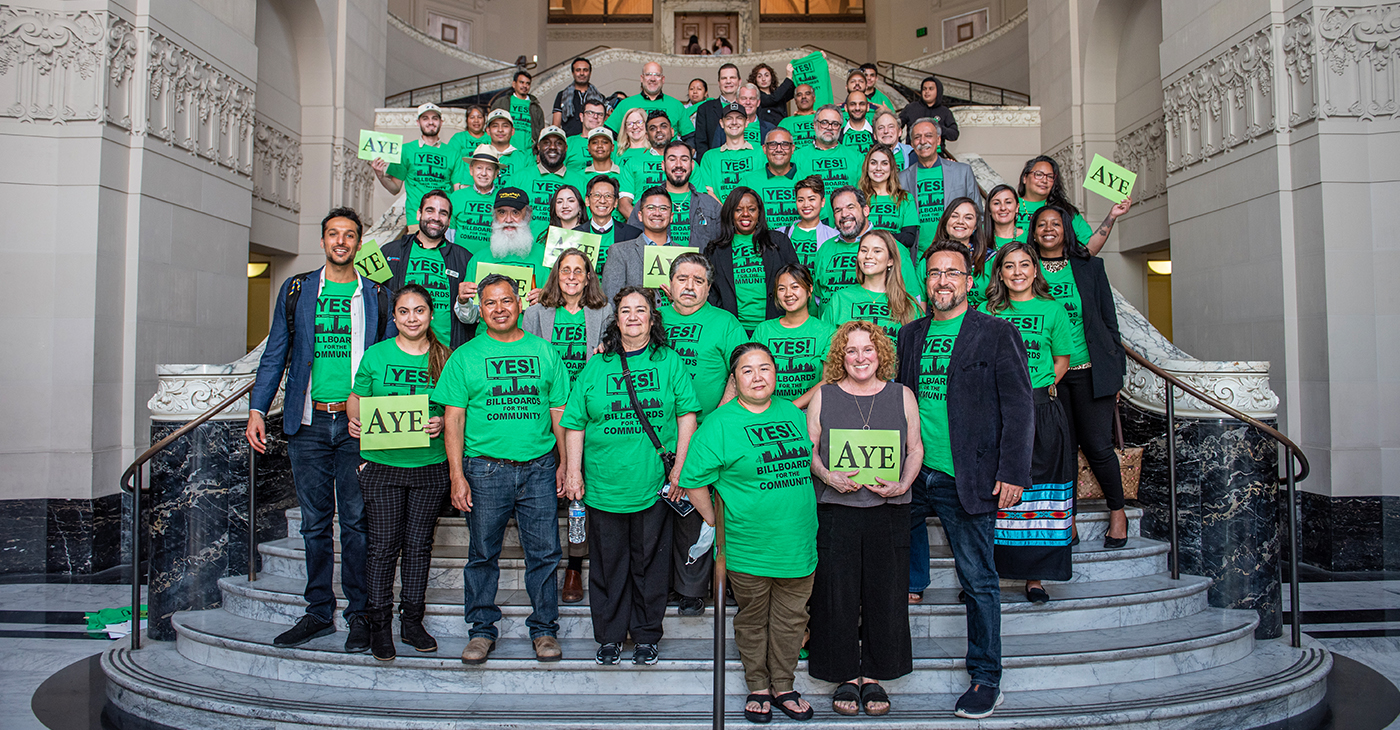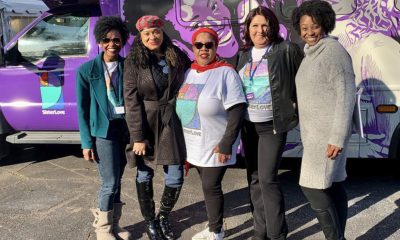Health
FDA Approves Genetically Engineered Potatoes, Apples as Safe

This May 10, 2013 file photo shows a genetically engineered potato poking through the soil of a planting pot inside J.R. Simplot’s lab in southwestern Idaho. Potatoes that won’t bruise and apples that won’t brown are a step closer to grocery store aisles. (AP Photo/John Miller, File)
MARY CLARE JALONICK, Associated Press
KEITH RIDLER, Associated Press
BOISE, Idaho (AP) — Potatoes that won’t bruise and apples that won’t brown are a step closer to grocery store aisles, but some food suppliers say they don’t want any part of it and others are staying silent.
The Food and Drug Administration on Friday approved the genetically engineered foods, saying they are “as safe and nutritious as their conventional counterparts.”
The approval covers six varieties of potatoes by Boise, Idaho-based J. R. Simplot Co. and two varieties of apples from the Canadian company Okanagan Specialty Fruits Inc.
Genetically modified organisms, or GMOs, refers to food grown from seeds that are genetically engineered in a lab. Aware of potential resistance from consumers, Simplot officials say Innate potato traits come exclusively from genes from domestic potato varieties.
However, one of the company’s oldest business partners — McDonald’s — said it won’t use the potatoes.
“McDonald’s USA does not source GMO potatoes nor do we have current plans to change our sourcing practice,” the company said in a statement Friday.
Burger King and Wendy’s declined to comment.
Okanagan, based in British Columbia, wants to make apples a more convenient snack with its non-browning version. The company says bagged apples wouldn’t have to be washed in antioxidants like they are now, a process that can affect taste. Company founder Neal Carter said Okanagan wants to see bagged apples become as prolific as bagged baby carrots.
“We know that in a convenience-driven world, a whole apple is too big of a commitment,” Carter said.
The apples are dubbed Arctic Apples, and Carter said he wants them to be labeled as such. The first two varieties will be Granny Smith and Golden Delicious. Carter said there won’t be significant plantings until 2017.
Simplot calls its potatoes Innate and the varieties selected include Ranger Russet, Russet Burbank and Atlantic.
“We’re trying to improve potatoes so everyone gets a better experience, just like it’s right out of the field,” said Haven Baker, vice president of plant sciences for Simplot.
But it could be years before the average customer is able to buy one. The company has about 400 acres of Innate potatoes in storage from the 2014 harvest that it plans to deliver to growers, packers and shippers to be sent to a tightly-controlled network for use in small-scale test markets.
The company said those markets haven’t been determined, and it’s not clear how the potatoes will be labeled. The company said it’s not selling Innate seed potatoes on the open market.
ConAgra, a major French fry and potato supplier through Lamb Weston to restaurant chains, said it won’t use the potatoes.
“All Lamb Weston frozen potato products are made with non-GMO potatoes, in line with customer demand,” a company statement said.
Food supplier McCain in a statement said its policy is to not use GMO potatoes. But the company also said it recognized the challenge of producing affordable food to meet demand and planned to monitor and possibly participate in research.
“Regulatory compliance and consumer acceptance for the use of any new technology will guide our actions,” the company said.
Simplot says its potatoes will have 70 percent less acrylamide, a chemical that can be created when potatoes are cooked at high temperatures. And it’s touting that as a health benefit, as some studies have shown acrylamide to be a potential carcinogen, though the National Cancer Institute at the National Institutes of Health says scientists “do not yet know with any certainty” whether the substance can be harmful in food.
The FDA in its approval Friday noted that acrylamide has been found to be a carcinogenic in rodents.
Simplot says its potatoes have 40 percent less bruising from impacts and pressure during harvest and storage then conventional potatoes, which the company said could reduce the more than 3 billion pounds of potatoes discarded yearly by consumers.
The FDA’s review process is voluntary, but both companies asked for one. To review, FDA compares safety and data of the GMO food in comparison to conventional variety.
Gregory Jaffe, biotechnology director for the Center for Science in the Public Interest, in a statement Friday objected to the voluntary system for approving GMOs and said legislation is needed to make it mandatory.
____
Jalonick reported from Washington. AP Food Industry Writer Candice Choi contributed in New York.
Copyright 2015 The Associated Press. All rights reserved. This material may not be published, broadcast, rewritten or redistributed.
California Black Media
Gov. Newsom Announces He Backs a Ban on Cellphones in Schools
Gov. Gavin Newsom wants to restrict the use of smartphones in K-12 schools statewide, he announced on Tuesday. The Governor stated his intentions amid warnings from President Joe Biden on the harmful impact of social media on children. The announcement followed a report released by the U.S. Surgeon General Vivek Murthy that calls on Congress to regulate social media platforms.

By California Black Media
Gov. Gavin Newsom wants to restrict the use of smartphones in K-12 schools statewide, he announced on Tuesday.
The Governor stated his intentions amid warnings from President Joe Biden on the harmful impact of social media on children. The announcement followed a report released by the U.S. Surgeon General Vivek Murthy that calls on Congress to regulate social media platforms.
Proposed regulations include warning labels on harmful content that may hurt minors active on social media. The Governor stated that he plans to sign a law that authorizes school districts to limit or ban the use of smartphones by students or require the supervision of a school employee.
“As the Surgeon General affirmed, social media is harming the mental health of our youth. Building on legislation I signed in 2019, I look forward to working with the Legislature to restrict the use of smartphones during the school day,” said Newsom.
“When children and teens are in school, they should be focused on their studies — not their screens,” he said.
In 2022, Newsom authored a letter urging companies in the tech industry to drop a lawsuit against the children’s online safety law he signed that same year. Newsom aims to take online safety laws a step further allowing school districts to ban or limit the use of smartphones to help protect children from the harmful effects of social media.
The California School Boards Association argues that any rules on the use of smartphones should be regulated by school districts as opposed to the state.
Troy Flint, the school board association’s spokesperson, said that school districts should make the final decision on regulations over smartphones.
“We support legislation which empowers school leaders to make policy decisions at a local level that reflect their community’s concerns and what’s necessary to support their students,” said Flint.
The Los Angeles Unified School District (LAUSD) supports Gov. Newsom’s plan to ban smartphones during school hours, stating that smartphones and devices distract students from learning and facilitate cyberbullying.
On June 18, LAUSD voted to ban the use of cellphones during the school day.
In a similar light, Sen. Henry Stern (D-Malibu) proposed SB 1283 earlier this year. If passed, the legislation will give school districts more authority to limit the use of social media at school. SB 1283 is currently under review in the Assembly Education Committee.
“It’s just too hard for every teacher, every school, or every parent to have to figure this out on their own,” said Stern. “There are sometimes when government just has to step in and make some bigger rules of the road.”
A similar bill, AB 3216, introduced by Assemblymembers Josh Hoover (R-Folsom), Josh Lowenthal (D-Long Beach) and Al Muratsuchi (D-Rolling Hills Estates), is being considered by the Senate Education Committee.
The bills would take effect in January if passed by the Legislature and is approved by the Board of Education in school districts that support the cellphone ban.
Community
Gov. Newsom: California Is Making Progress in Fentanyl Fight
Last week, Gov. Gavin Newsom announced that state law enforcement authorities seized 5.8 million pills containing fentanyl across the state since the beginning of the year. The California National Guard Counterdrug Task Force partnered with local and federal law enforcement to seize illegal fentanyl off the streets and at ports of entry along the Southern border, according to Newsom.

By California Black Media
Last week, Gov. Gavin Newsom announced that state law enforcement authorities seized 5.8 million pills containing fentanyl across the state since the beginning of the year.
The California National Guard Counterdrug Task Force partnered with local and federal law enforcement to seize illegal fentanyl off the streets and at ports of entry along the Southern border, according to Newsom.
Two weeks ago, the State Senate passed the bipartisan Safer California Plan to address the fentanyl crisis and reduce crime in communities statewide.
Senate President pro-Tempore Mike McGuire (D-North Coast) has coauthored 15 bills focusing on crime prevention in local communities. Ten of the bills focus on evidence-based prevention and treatment solutions that address substance abuse and the fentanyl crisis.
Pro Tem McGuire said the bills, “will help curb the deadly fentanyl epidemic,” and reduce community-based crimes that impact people across the state.
CalGuard Major General Matthew Beevers worked alongside law enforcement partners to tackle the fentanyl crisis in the state.
“The volume of seizures we’re enabling and supporting demonstrates our commitment to denying operating capital to drug cartels and making California safer,” said Beevers.
Before the Senate’s package of bills passed, Gov. Newsom compiled a master plan designed to tackle the growing fentanyl and opioid crisis in California. The master plan provided a framework that addresses drug trafficking, supports overdose prevention efforts, and holds the pharmaceutical industry accountable.
“Illegal fentanyl has no place in our neighborhoods. California is tackling this problem head-on by holding drug traffickers accountable and increasing seizures, while at the same time expanding access to substance abuse treatment options and providing lifesaving, affordable reversal medicine to Californians statewide,” said Newsom.
The Newsom administration has also launched an online resource and tools for residents seeking help with prevention and treatment methods for fentanyl and opioid-related substance abuse at Opioids.Ca. Gov
Activism
Community Celebrates Historic Oakland Billboard Agreements
We, the Oakland Billboard Economic Development Coalition, which includes Oakland’s six leading community health clinics, all ethnic chambers of commerce, and top community-based economic development organizations – celebrate the historic billboard agreements approved last year by the Oakland City Council. We have fought for this opportunity against the billboard monopoly, against Clear Channel, for five years. The agreements approved by Council set the bar for community benefits – nearly $70 Million over their lifetime, more than 23 times the total paid by all previous Clear Channel relocation agreements in Oakland combined.

Grand Jury Report Incorrect – Council & Community Benefit
We, the Oakland Billboard Economic Development Coalition, which includes Oakland’s six leading community health clinics, all ethnic chambers of commerce, and top community-based economic development organizations – celebrate the historic billboard agreements approved last year by the Oakland City Council. We have fought for this opportunity against the billboard monopoly, against Clear Channel, for five years. The agreements approved by Council set the bar for community benefits – nearly $70 Million over their lifetime, more than 23 times the total paid by all previous Clear Channel relocation agreements in Oakland combined.
Unfortunately, a recent flawed Grand Jury report got it wrong, so we feel compelled to correct the record:
- Regarding the claim that the decision was made hastily, the report itself belies that claim. The process was five years in the making, with two and a half years from the first City Council hearing to the final vote. Along the way, as the report describes, there were multiple Planning Commission hearings, public stakeholder outreach meetings, a Council Committee meeting, and then a vote by the full Council. Not only was this not hasty, it had far more scrutiny than any of the previous relocation agreements approved by the City with Clear Channel, all of which provide 1/23 of the benefits of the Becker/OFI agreements approved by the Council.
- More importantly, the agreements will actually bring millions to the City and community, nearly $70M to be exact, 23 times the previous Clear Channel relocation agreements combined. They certainly will not cost the city money, especially since nothing would have been on the table at all if our Coalition had not been fighting for it. Right before the decisive City Council Committee hearing, in the final weeks before the full Council vote, there was a hastily submitted last-minute “proposal” by Clear Channel that was debunked as based on non-legal and non-economically viable sites, and relying entirely on the endorsement of a consultant that boasts Clear Channel as their biggest client and whose decisions map to Clear Channel’s monopolistic interests all over the country. Some City staff believed these unrealistic numbers based on false premises, and, since they only interviewed City staff, the Grand Jury report reiterated this misinformation, but it was just part of Clear Channel’s tried and true monopolistic practices of seeking to derail agreements that actually set the new standard for billboard community benefits. Furthermore, our proposals are not mutually exclusive – if Clear Channel’s proposal was real, why had they not brought it forward previously? Why have they not brought it forward since? Because it was not a real proposal – it was nothing but smoke and mirrors, as the Clear Channel’s former Vice President stated publicly at Council.
Speaking on behalf of the community health clinics that are the primary beneficiaries of the billboard funding, La Clinica de la Raza CEO Jane Garcia, states: “In this case, the City Council did the right thing – listening to the community that fought for five years to create this opportunity that is offering the City and community more than twenty times what previous billboard relocation agreements have offered.”
Oakland Billboard Economic Development Coalition
| Native American Health Center | La Clínica de la Raza | West Oakland Health Center |
| Asian Health Services | Oakland LGBTQ Center | Roots Community Health Center |
| The Unity Council | Black Cultural Zone | Visit Oakland |
| Oakland African American Chamber of Commerce | Oakland Chinatown Chamber of Commerce | Oakland Vietnamese Chamber of Commerce |
| Oakland Latino Chamber of Commerce | Building Trades of Alameda County | (partial list) |
-

 Arts and Culture3 weeks ago
Arts and Culture3 weeks agoRooted in Tradition: The Intricate History of Black Hair Braiding
-

 Bay Area4 weeks ago
Bay Area4 weeks ago“I Will Not Be Bullied,” Says Oakland Mayor Sheng Thao
-

 Bay Area2 weeks ago
Bay Area2 weeks agoPG&E Increases Rates While Bay Area Households Are Struggling to Stay Afloat
-

 Business3 weeks ago
Business3 weeks agoGov Newsom: Raising Fast Food Minimum Wage to $20 Pays Off as Jobs Multiply in Industry
-

 Activism4 weeks ago
Activism4 weeks agoOpponents of Mayor Sheng Thao Are Calling on Her to Resign Following FBI Raid
-

 Community1 week ago
Community1 week agoHundreds Come to Jehovah’s Witnesses’ Assembly Hall for Three-Day Program of ‘Good News’ in Fremont
-

 Bay Area2 weeks ago
Bay Area2 weeks agoJuneteenth Mass Shooting Suspect Charge with Multiple Counts of Felony Assault by Alameda County DA Pamela Price
-

 Activism4 weeks ago
Activism4 weeks agoOakland Coliseum Sale to AASEG: A Model for Community Development and Inclusion





















































